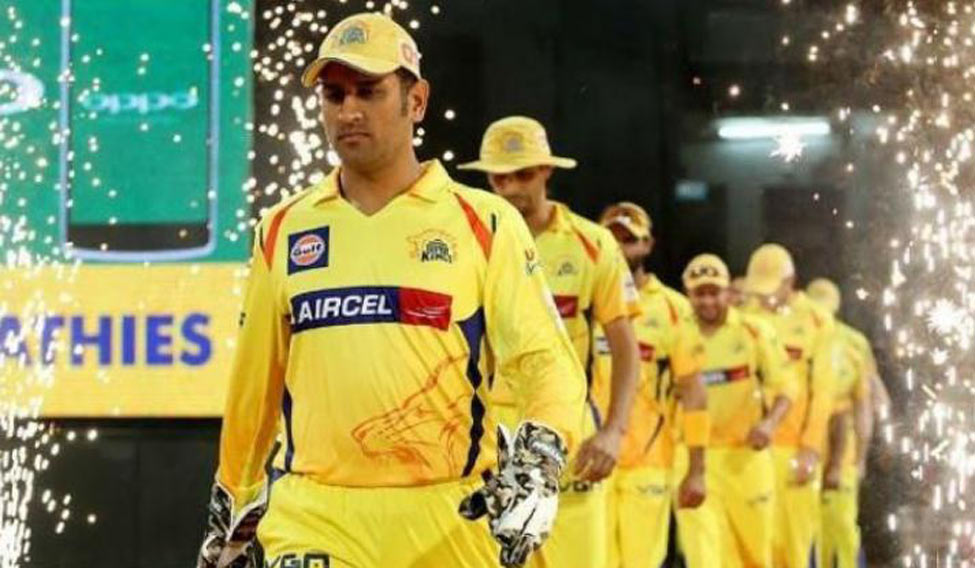The immense clout that former Board of Control for Cricket in India president N. Srinivasan holds even now within the Board came to the fore as the Indian Premier League’s Governing Council announced its player retention policy in New Delhi on Wednesday.
“The player pool available for CSK and RR for retention/RTM will be the players who played for them respectively in IPL 2015 and who were part of RPS and GL squads in IPL 2017,” read the media release issued by the BCCI. Rest of the teams had been opposing the retention policy, wanting all players to go back to the pool. But, in the end, Chennai Super Kings, a company owned by India Cements of which Srinivasan is managing director, prevailed. It marks the formal return of the champion team to the IPL. It is also being marked as a double homecoming as decks got cleared for the return of Mahendra Singh Dhoni to the original base.
With the two-year ban on Chennai Super Kings and Rajasthan Royals imposed by Supreme Court over, both teams return to the IPL fold. The ban on both teams came in the wake of the IPL spot-fixing scam in 2013 that led to a SC-monitored inquiry and the setting up of the Lodha Commission thereafter. The Justice Mukul Mudgal committee set up by apex court dealt not just with the fixing aspect, but also brought to the fore hitherto whispered allegations related to Conflict of Interest in the BCCI and IPL and the non-transparent functioning of the cricket board―an institution ridden with vested interest both by administrators and players and corruption. It led to the end of Dhoni’s control in the Indian cricket team, a bitter power struggle within the Board and a long-drawn legal battle outside it.
Eventually, Srinivasan had to step down as BCCI president. It also marked the end of the BCCI way of functioning and structure. With the Srinivasan-backed majority group holding sway despite his physical absence from the BCCI, the Committee of Administrators was brought in by the SC to run the show.
More than Royals, the ban hurt CSK and Dhoni. The former IPL champion team was the formidable team of the tournament. Both the team and its talismanic skipper Dhoni became intrinsic to each other. CSK did what other teams struggled to do―create their own powerful brand and a legion of die-hard fans who stuck through thick and thin.
“It's very good for the IPL that both CSK and RR are returning. CSK, in particular, has been one of the most loved, popular franchises. It has one of the strongest fan connect. Investors looked at it not just as a cricket tournament, but a brand with commercial value,” explains Amrit Mathur, former CEO of Delhi Daredevils. He gives the example of DD in comparison―a team still working hard to establish a connect with Delhi fans. It helped that “the core of CSK always remained strong and same. That’s why fans backed the team each time.”
CSK’s brand as a hugely successful IPL team was also built on the sheer presence of Captain Cool Mahendra Singh Dhoni. “It’s the most settled team of all in the IPL. The fact is that they are able to retain the same team,” remarked Mathur. “The two new teams which came in to fill up came with a totally different purpose. They didn’t have to work purposefully on building a fan connect and city connect as they knew they were there for two years only.”
“MSD is THE star. He is one of the few players who have stuck with one team, and swore allegiance even when they were suspended for two years,” points out another top official of a franchise. This retention policy will help CSK retain the same core―Dhoni, Suresh Raina, Ravindra Jadeja, maybe Ravichandran Ashwin, Dwayne Bravo.”
There is a buzz that even pre-ban CSK coach Stephen Fleming is also set for a homecoming. Therefore , many experts feel, CSK wont find the going tough on return.
Dhoni’s time with Rising Pune Super Giants was, as is well-known, not the happiest. He appeared detached, his heart still beating for the team he helped built from scratch. He was the boss at CSK, after Srinivasan, of course. He didn’t enjoy the same absolute say on team selection and affairs as he he did in CSK. In the second year with RPSG, he was also removed as captain and Steven Smith took charge.
While Dhoni’s power won't be diminished on his return to CSK, many point to the fact that Dhoni’s own abilities as batsman are fading.
“Indeed, he’s not the same player he was two-three years back but then neither are Raina or Bravo. But Dhoni’s captaincy powers need not be affected with age. And he’s still a force to reckon with in the shortest format,” observed a franchise boss.
Even Raina, who has found it difficult to return to Team India, will be under scrutiny for form and impact that he garnered fame for. As for Ashwin, whose exploits in the IPL became a course changer for his career, it will be interesting to see whether he would like to return to his “home franchise” or look for another option, a bigger role. In last few seasons with CSK, he had reportedly explored the option of changing his franchise with the aim of a bigger role.
So will CSK’s second innings see Dhoni in a bigger role of captain cum mentor?
“Without the latter tag, he’s been in any case doing that,” says Mathur. “Senior players in the IPL teams do play that role in any case automatically. Look at Sachin Tendulkar, Anil Kumble, Rahul Dravid. Will Dhoni go Dravid’s way as captain, coach and mentor―there still time for that. In any case, Dravid is a different personality all together,” said Mathur.






